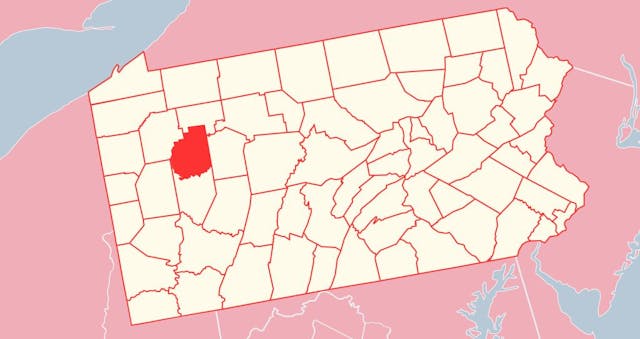Rehabs in Clarion
Clarion County is located in the state of Pennsylvania. The county seat is Clarion. This province is considered part of the Pittsburgh media market. This region is also famous for its low crime rate and beautiful nature.
Moreover, according to the 2020 census, the population of this province is 37,241. This number is quite high. As a result, many major issues occur. One of them is the high number of substance dependence cases. As of the PA Department of Drug and Alcohol Program’s recent statistics, only in 2016, there were over 1,000 drug abuse cases reported in this province. Thus, rehabs in Clarion County try to improve this situation by offering more well-developed treatment schedules.
Drug and Alcohol Abuse Level Evaluation
Drug and alcohol addiction’s on-time care is quite vital for a full recovery. Thus, it is critical to complete all the necessary stages. The first stage toward recovery is evaluation. It is crucial for further cure. The client and the addiction advisor start the assessment with a consultation.
The further evaluation process consists of two main phases. First of all, clients complete screening. Professionals give the patient questions to understand if they have any dependency issues. If the answer to the screening shows an addiction issue, the next stage happens. The latter is called assessment. During this part, the experts define the type of the issue. Later, they plan the most effective therapy based on the assessement results. As most of the time addiction brings mental issues, the evaluation includes check-ups for co-occurring diseases as well.
Types of Rehabs in Clarion County
If the Clarion residents want proper treatment, they will easily find a recovery institution in this province. Most often, the patients choose a recovery center based on the therapies they include. So, Rehabs in Clarion County offer the following services:
Assessement
Medical detoxification
Group/individual advising
Family Counseling
Inpatient/outpatient therapies
Residential treatment
In this province, several centers are providing a full package of programs for recovery. Some of those centers are:
Inpatient and Outpatient Programs
After the patient has completed the evaluation, the therapist will recommend they enter either an inpatient or outpatient program. Both of them are essential for a full recovery. However, there are some differences between them.
First of all, the inpatient program is more intensive. It is usually helpful for more serious cases of drug or alcohol misuse. The patients need to stay at the recovery center during the whole treatment. On the other hand, an outpatient plan offers flexibility as it is part-time. It is suitable for those who work or study. Yet, it may not be useful for severe addiction levels as here the risk of relapse is quite high.
Luxury Rehabs
In general, there are a luxury and classic recovery facilities. Luxury recovery centers provide top services. They are mostly like resorts. Also, they provide various services to meet the patient's needs. Yet, the prices are high. Besides, there are only a few such facilities that accept any financial assistance. It would also be hard to find a luxury establishment that offers discounts. Sliding scale fees also are not common concerning this option.
Payment Methods
Standard recovery centers are relatively cheap. They charge less money but also provide effective solutions. In terms of payment methods, you can pay via cash or credit/debit cards.
Those who cannot pay due to financial problems can still use their insurance coverage. Some of the most common types are:
Private insurance
Military insurance
Medicare/Medicaid
Scholarships and grants
Make sure to check if the centers you chose to accept your insurance coverage.
Forcing Your Teen Into a Rehab
In the 21st century, children and teenagers are more likely to become addicted to certain substances. Thus, it is vital to pay attention to their lifestyle and create special bonds with them. Some facilities offer services, especially for young adults. They may include family support and alumni projects for a more complete recovery.
However, another major issue is guiding them to enter a recovery facility. The fact is even if the legal law enables forcing a teen into rehab, it’s better to make the recovery smooth with family support and persuasion.

